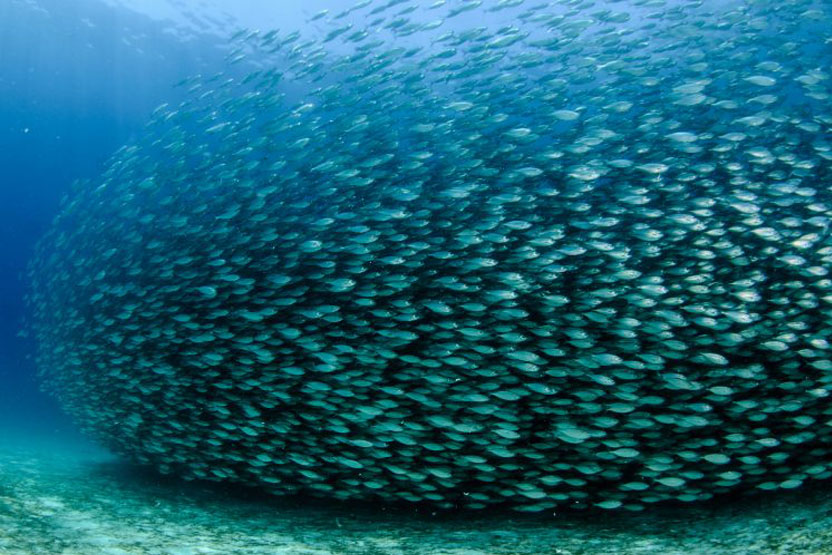
A new study has found that climate change will drive significant shifts in the distribution of fish stocks shared between countries’ exclusive economic zones (EEZs) and international waters, or the high seas, with major implications for food security and ocean governance.
Published in Science Advances, the research identifies 347 straddling stocks across 67 species — including tuna, sharks, and squid — that already cross maritime boundaries. Using ecosystem models under both high- and low-emission scenarios, the authors project that by 2030 at least 37% of these stocks will shift between EEZs and the high seas, a figure that could rise to more than half (54–62%) by 2050.
Most of these movements are expected to be toward the high seas, where fisheries are more difficult to monitor and regulate. Experts warn this could accelerate overexploitation, threaten livelihoods, and deepen inequities between nations.
“Climate change is sending a whole bunch of fisheries out into the lion’s den because the high seas doesn’t have a great reputation for sustainable fisheries management,” said Malin Pinsky, a fisheries scientist at the University of California, Santa Cruz, who was not involved in the study.
Tropical nations at risk
The study highlights a particular danger for tropical coastal states and small island developing states (SIDS), many of which depend heavily on tuna and other migratory species for food and revenue but lack the resources to fish in distant waters. In the central Indo-Pacific region, which includes countries such as Kiribati, Tuvalu, and Papua New Guinea, 58% of straddling stocks are projected to move into the high seas by 2050, with none expected to shift in the opposite direction.
“This is very concerning,” said lead author Juliano Palacios-Abrantes, a researcher at the University of British Columbia. “Coastal nations in the tropics don’t really have the resources to go to the high seas. These shifts could mean a real loss of food security and economic opportunities for them.”
Among the most affected species are skipjack, yellowfin, and bigeye tuna, as well as squid and mackerel — staples of tropical economies and diets.
The study’s authors argue that both coastal states and Regional Fisheries Management Organizations (RFMOs) must urgently adapt their governance frameworks to account for shifting fish stocks. Without stronger cooperation, they warn, disputes over access and rights could increase, while vulnerable nations risk being sidelined.
Some experts suggest bolder reforms. Co-author Rashid Sumaila, a professor at the University of British Columbia and winner of the 2023 Tyler Prize for the Environment, reiterated his call for a ban on high seas fishing. He argues such a measure would transform the high seas into a biodiversity refuge while curbing inequitable exploitation by industrial fleets.
Others, like Johann Bell of Conservation International, point to the need for RFMOs such as the Western and Central Pacific Fisheries Commission (WCPFC) and the Inter-American Tropical Tuna Commission (IATTC) to strengthen collaboration and develop climate-informed strategies for shared tuna stocks.
Uncertain future
The study notes that while projections are robust across different climate scenarios, data gaps remain a major challenge, particularly for less-studied species. Independent fisheries surveys are rare, and catch data are often limited or closely guarded.
Even so, researchers say the warning signs are clear: climate change is redrawing the map of global fisheries in ways that could compound existing injustices and undermine marine sustainability.
“Most RFMOs are still stuck in the 20th century,” said Ryan Orgera, global director of Accountability.Fish. “But climate change can be an opening to retool them — because the sands are already shifting beneath us.”


Comment